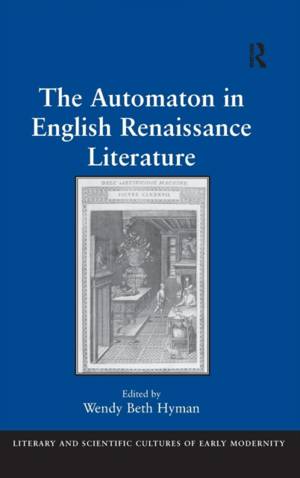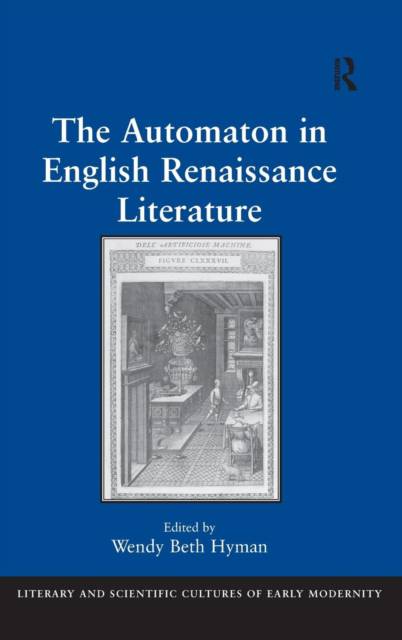
Je cadeautjes zeker op tijd in huis hebben voor de feestdagen? Kom langs in onze winkels en vind het perfecte geschenk!
- Afhalen na 1 uur in een winkel met voorraad
- Gratis thuislevering in België vanaf € 30
- Ruim aanbod met 7 miljoen producten
Je cadeautjes zeker op tijd in huis hebben voor de feestdagen? Kom langs in onze winkels en vind het perfecte geschenk!
- Afhalen na 1 uur in een winkel met voorraad
- Gratis thuislevering in België vanaf € 30
- Ruim aanbod met 7 miljoen producten
Zoeken
The Automaton in English Renaissance Literature
€ 305,45
+ 610 punten
Omschrijving
The Automaton in English Renaissance Literature features original essays exploring the automaton-from animated statue to anthropomorphized machine-in the poetry, prose, and drama of England in the 16th and 17th centuries. Addressing the history and significance of the living machine in early modern literature, the collection places literary automata of the period within their larger aesthetic, historical, philosophical, and scientific contexts. While no single theory or perspective conscribes the volume, taken as a whole the collection helps correct an assumption that frequently emerges from a post-Enlightenment perspective: that these animated beings are by definition exemplars of the new science, or that they point necessarily to man's triumphant relationship to technology. On the contrary, automata in the sixteenth and seventeenth centuries seem only partly and sporadically to function as embodiments of an emerging mechanistic or materialist worldview. Renaissance automata were just as likely not to confirm for viewers a hypothesis about the man-machine. Instead, these essays show, automata were often a source of wonder, suggestive of magic, proof of the uncannily animating effect of poetry-indeed, just as likely to unsettle the divide between man and divinity as that between man and matter.
Specificaties
Betrokkenen
- Uitgeverij:
Inhoud
- Aantal bladzijden:
- 222
- Taal:
- Engels
- Reeks:
Eigenschappen
- Productcode (EAN):
- 9780754668657
- Verschijningsdatum:
- 28/08/2011
- Uitvoering:
- Hardcover
- Formaat:
- Genaaid
- Afmetingen:
- 156 mm x 234 mm
- Gewicht:
- 489 g

Alleen bij Standaard Boekhandel
+ 610 punten op je klantenkaart van Standaard Boekhandel
Beoordelingen
We publiceren alleen reviews die voldoen aan de voorwaarden voor reviews. Bekijk onze voorwaarden voor reviews.








